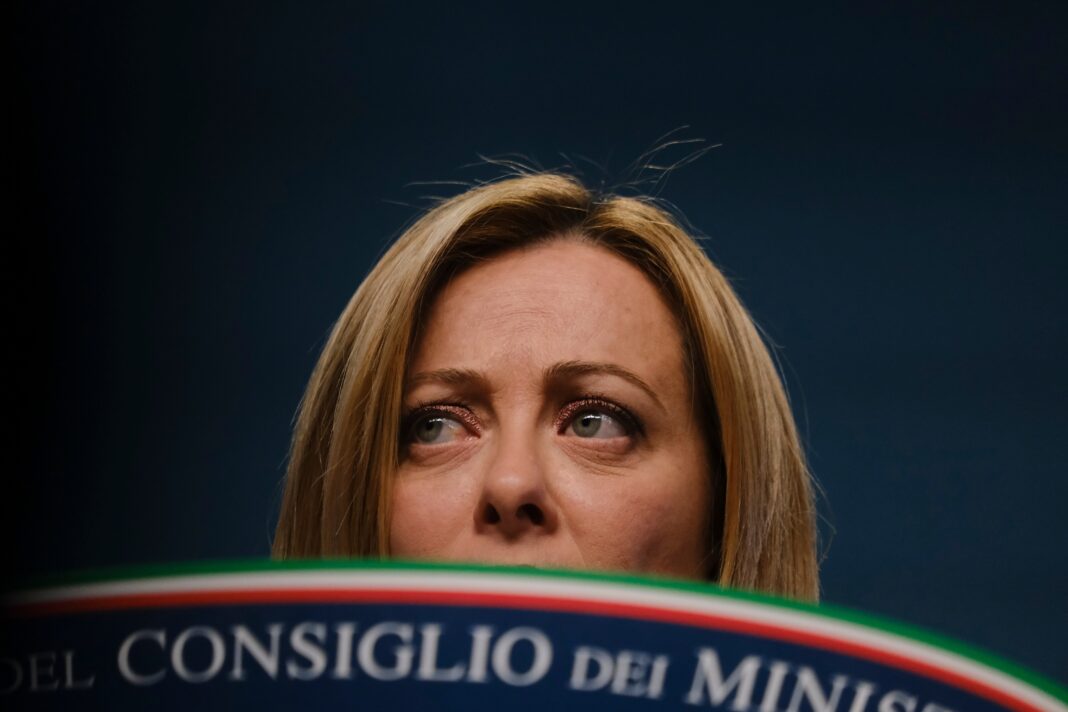by Anna Violante
After a year of proposals, discussions, a parliamentary approval (early November) and numerous trips by Ms Meloni to African Countries, the Mattei plan was officially launched in the Italian Senate, where ordinary senators were temporarily barred from sitting, especially if they belonged to the opposition.
“Italia-Africa. A bridge for common growth” was the title of the conference held in Rome on 29 and 30 January. The Mattei Plan, as presented to the audience, consists of 5 “pillars” of development aid that Italy would offer to Africa as a whole in exchange for better control of illegal migration. Prime Minister Meloni pointed out more than once that the improved conditions offered by the plan would discourage people from migrating to Europe:
– Educational measures support teacher training, update curricula, introduce market-oriented vocational courses, and collaborate with companies, focusing on the Italian model of small and medium-sized enterprises.
– In agriculture, the focus is on reducing malnutrition, developing agri-food chains and promoting non-fossil biofuels. The priority is on family farming, forest conservation and combating climate change through integrated agriculture.
– Health measures aimed at improving primary care for mothers and children, strengthening local health capacity and developing strategies to prevent pandemics and natural disasters.
– The energy goal is to make Italy a hub between Europe and Africa, emphasizing energy efficiency, renewable energy use, and accelerating electrical system transformation. The plan includes local development of energy technologies, creating innovation centres, and promoting employment and human capital development.
– Water measures include drilling of wells powered by photovoltaic systems, maintenance of existing water points, investment in distribution networks and awareness campaigns on the use of clean water.
The first controversy concerns the financing of such an ambitious programme. Italy will provide $5.5 billion (€3 billion from the climate fund and €2.5 billion from the development cooperation fund), with Europe supposedly committing a further $150 billion in an unspecified future with the African Development Bank, as pledged by European Commission President Ursula von der Leyen. Yet UN Deputy Secretary-General Amina Mohammed highlighted the global need for $500 billion a year to support African development, while Moussa Faki, President of the African Union Commission, expressed his dissatisfaction at not being consulted on the “Mattei Plan” and called for concrete action rather than empty promises.
A second controversy was raised in a letter to the Italian Government by environmental groups including Greenpeace, Kyoto Club, Legambiente and WWF Italy. Their concerns relate to the plan’s consistency with environmental objectives and its potential impact on climate change commitments. The environmentalists highlight Italian plans to become a gas exporter to Germany and Austria, focusing on gas pipelines and imports from Countries such as Algeria, Libya and Azerbaijan, which ENI would manage, risk undermining commitments to limit global warming and challenge the concept of ecological transition.
Lack of transparency is certainly the main concern raised so far. Many observers suspect that the real objectives of the plan are to curb migration to Europe and to exploit Africa’s water and energy resources, in line with Eni’s involvement in the programme. With Countries such as Mozambique, Congo and Ethiopia (which just went bankrupt) mentioned as potential future partners in the project, commercial agreements with Eni for the import of liquefied natural gas (LNG) are seen as potentially neo-colonial and predatory operations, especially in light of issues such as increased debt, poverty and inequality. Moreover, it sounds awkward that Italy would support African Countries through the plan while cutting funds for development cooperation, i.e. financial and practical aid.
If limiting illegal immigration was a goal that Meloni and her far-right party Fratelli d’Italia used as a banner to get elected over a year ago, then exploiting suffering but resource-rich countries for the benefit of ENI and other private companies is not a declared objective, nor is trying to counterbalance the growing influence of Russia and China on the African continent, in agreement with “friendly partner” Von der Lyen, who is allegedly seeking support for her re-election as head of the European Commission.
As for the plan’s similarities to Piano Mattei’s in the 1950s, they are more fictional than real. Mattei opted for independence from NATO and the West, establishing direct cooperation with the post-colonial States of the time, and was allegedly assassinated for this reason (see Atlas of Wars dossier). Similarly, the Italian Government’s claim that the Italians were particularly kind colonisers is a lie. In fact, as the journalist and historian Angelo del Boca wrote in his book “I Gas di Mussolini” (“Mussolini’s Gas”), published in 1996 and republished in 2021), the Italians were just as bloody and cruel as the French and all other European invaders of Africa.
On the cover photo, Italy’s Prime Minister Giorgia Meloni ©Alexandros Michailidis/Shutterstock.com
























